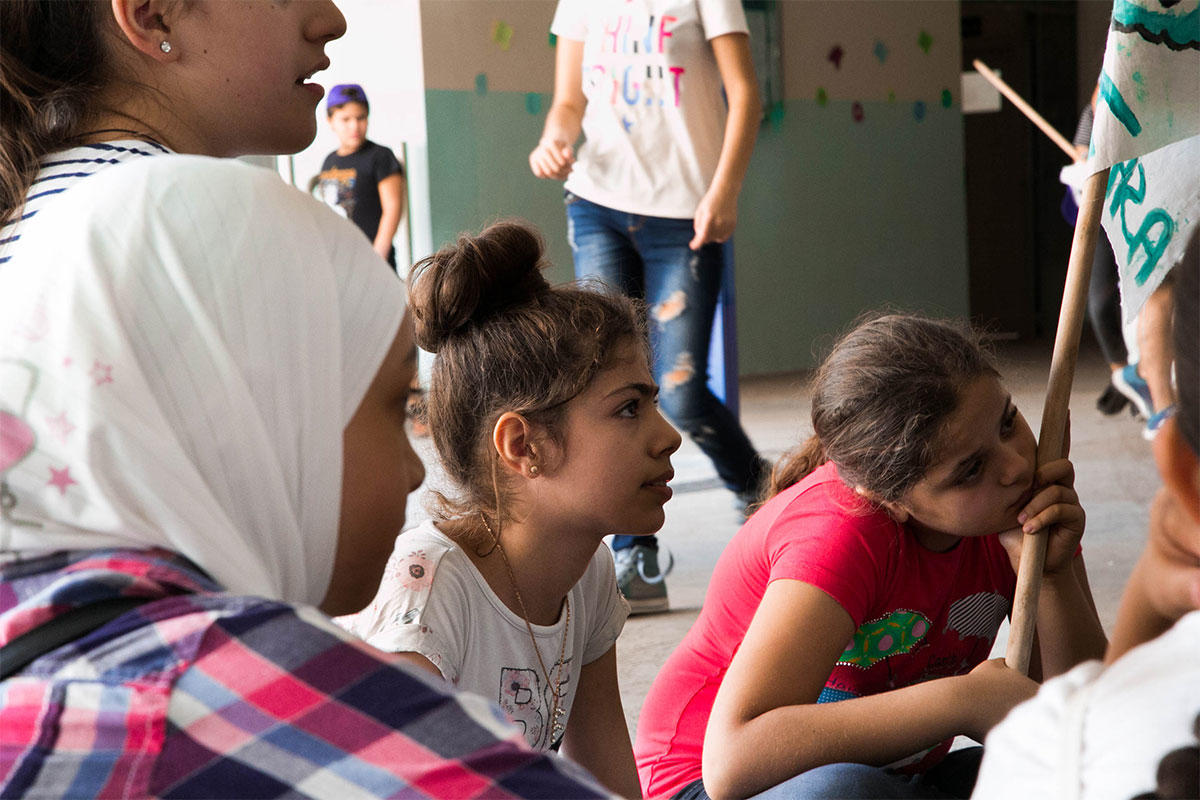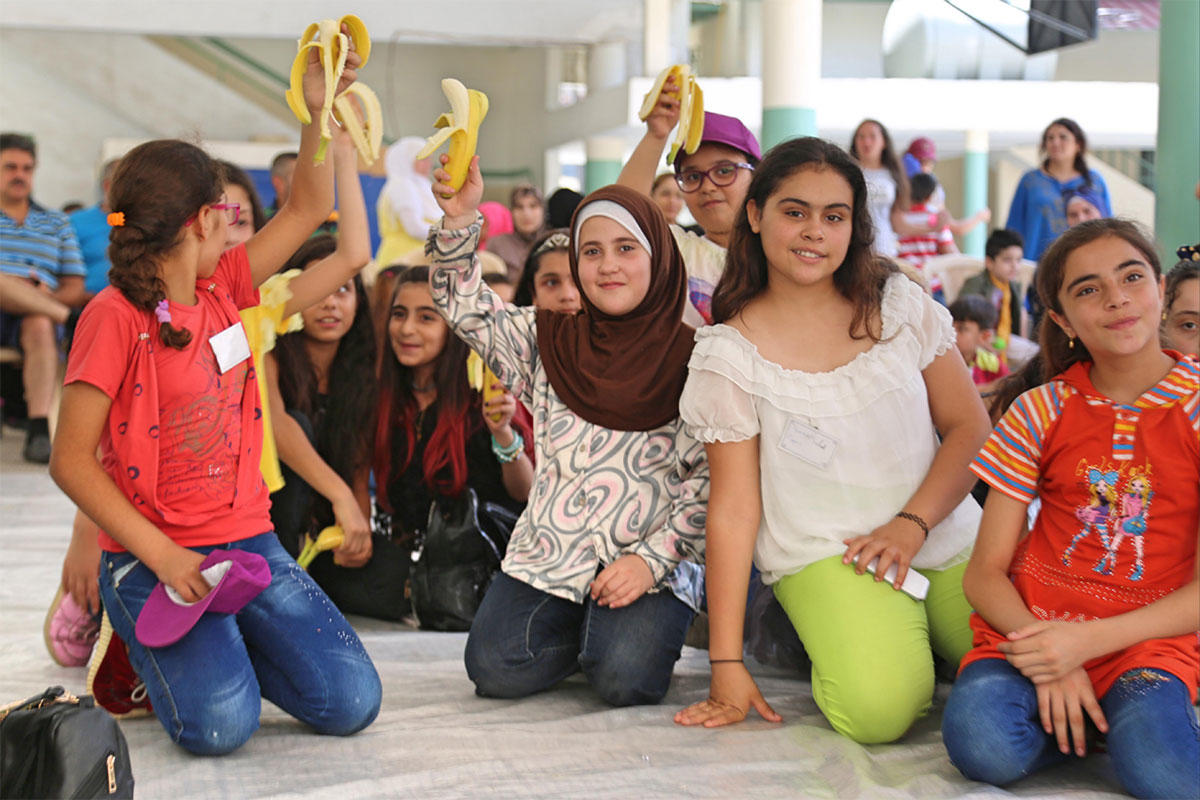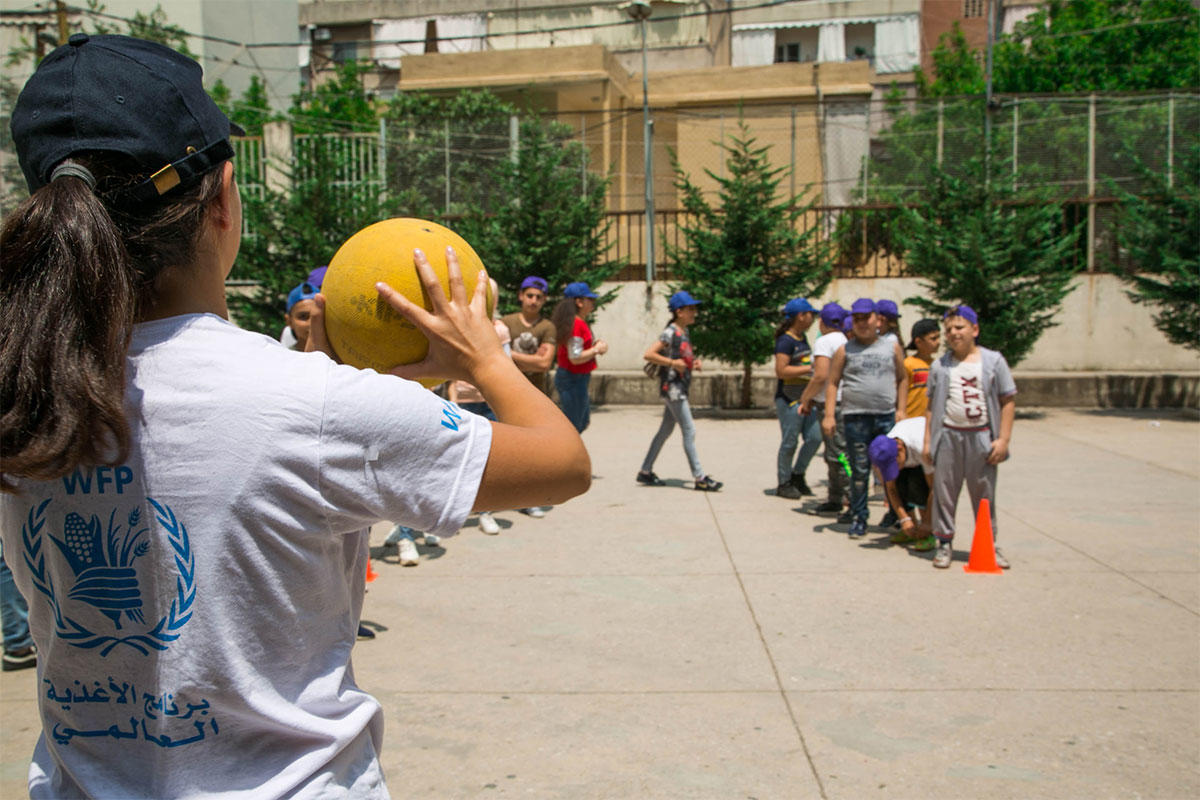LAU Faculty Assess World Food Programme Project in Lebanon
The study aims to help improve future programs supporting the physical and mental wellbeing of vulnerable children.
A team of LAU nutrition and psychology faculty members has published an assessment study of the World Food Programme (WFP) in Lebanon health and nutrition summer camps, in a major academic collaboration with governmental and international entities. The study, published in the British Journal for Nutrition, was selected as the Nutrition Society Paper of the Month for October 2020.
The annual Health and Nutrition Summer Camp program, organized with the Lebanese Ministry of Education and Higher Education, caters to vulnerable Syrian and Lebanese children and aims at improving physical, mental, and social wellbeing while contributing to better social cohesion. It comprises 20 camps, carried out throughout the summer and hosting up to 3,000 children aged 12 to 14 years.
The faculty – from the School of Arts and Sciences – had won a tender for a research grant to assess the camps’ “effectiveness in reaching the intended outcomes and to provide recommendations for improvement.”
“This program is of great significance given the high vulnerability of these children, with research showing a high prevalence of unhealthy eating habits and lifestyle behaviors (e.g. tobacco, alcohol, drug use) as well as violence and mental and sexual health issues,” said Associate Professor of Nutrition and Principal Investigator Nadine Zeeni.
“We are proud to be part of such an initiative that contributes to the physical and mental wellbeing of our community,” she added.
The researchers examined content, format, and lessons learned, “which will allow for tangible information to be used locally and globally for future similar interventions.”
Based on pre- and post-tests and focus groups, the study concluded that student scores related to nutrition and life skills “improved after completing the summer camps.”
The students, instructors and administrators also showed a positive attitude toward the summer camps with regard to the integrated and holistic content, snacks provided, and general atmosphere of fun and learning.
The study also identified main weaknesses such as “the short time to prepare for the camps, shortage in instructor training, and short camp duration.”
In addition, the researchers underlined the need to improve the Child and Adolescent Health module by “revising the way that sensitive sexual and reproductive health content is delivered given the distinct cultural context in Lebanon.”
They also recommended the “incorporation of more hands-on play-based activities which may help in enhancing social cohesion.”
The vulnerability of the children and the need to assess social cohesion called for the involvement of psychologists in the multi-disciplinary study.
“The project itself sheds light on the importance of integrating content on life skills and psychosocial development alongside overall health and nutritional education sessions,” said Assistant Professor of Psychology Myriam El-Khoury Malhame.
The study recommended that future WFP camps include “earlier planning and establishment of more partnerships,” in order to expand the aims and cover other issues faced by the population.
Illustrating LAU’s engagement in community service, she said the project also enhanced collaboration between LAU and governmental and international partners for the service of the Lebanese community at large.
Associate Professor of Nutrition Lama Mattar couldn’t agree more. “We have put our expertise as nutrition researchers at the service of the WFP so that we can move forward into the mutual complementation between research, intervention programs, policies and ultimately health promotion,” she added.
The team included Assistant Professor of Nutrition Berna El Rahi and alumna Claire El-Jor (BA-BS ‘16) who holds a double major in Psychology and Nutrition and Dietetics Coordinated Program from LAU.
“My whole experience at LAU and specifically my two majors provided me with the necessary skills to coordinate the research for such a large-scale project from planning and execution to report writing,” said El-Jor.
For Dr. Rahi, who pilot-tested the survey and trained student research assistants, the study helped her connect with the children on a personal and emotional level.
“One particular moment I still remember was the closing ceremony I attended in a camp in Sidon,” she said. “The children were dancing and singing with such enthusiasm and the parents were so proud. This moved me to tears because I felt how a small contribution from the WFP made such a huge difference and how our work will help them have a healthier future!”


